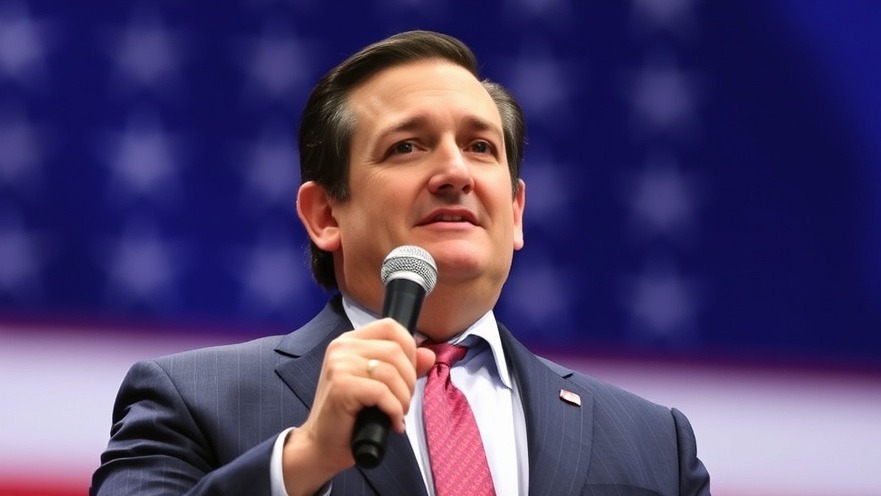
Political Tensions Heat Up: Cruz vs. Carlson
In a volatile political landscape, recent tensions between Senator Ted Cruz and conservative media figure Tucker Carlson reveal deep divisions within the Republican Party regarding U.S. involvement in military actions against Iran. During their heated Wednesday interview, the two clashed sharply over whether the U.S. should support Israeli military actions.
Understanding U.S.-Iran Relations
The backdrop of this clash is a rapidly deteriorating relationship between the United States and Iran. As President Donald Trump recently warned Iran against pursuing nuclear capabilities, the debate over military intervention gains urgency. Cruz emphasized his position against invading Iran unless the threat escalates considerably, which indicates a more cautious approach in contrast to Carlson’s perceived advocacy for aggressive military engagement.
Cruz Clarifies His Military Stance
Senator Cruz made a definitive statement during the interview, saying, "I would oppose invading Iran and putting boots on the ground to topple the government." He argued that the risks associated with such an invasion do not currently justify military intervention. This stance illustrates an important Republican perspective that favors diplomatic solutions over military actions, particularly considering the complexities of Iran's political landscape.
The Role of Media in Shaping Political Discourse
Carlson, known for his provocative style, pressed Cruz on the implications of military strikes and questioned the accuracy of Cruz's understanding of Iran's demographics and their influence on U.S. military strategies. This interaction highlights how media personalities play a crucial role in framing national discourse and potentially influencing public opinion on delicate international issues.
Is Military Intervention Justified?
The discussion around military intervention raises critical questions: At what point does the U.S. government decide to engage militarily? Cruz's measured response, indicating that "the risk is not severe enough to justify that step at this time," suggests a cautious approach in favor of evaluating circumstances thoroughly before escalating tensions further. Meanwhile, Carlson's urgency for decisive action reflects a segment of the political spectrum that views assertive responses as necessary. This discord encapsulates a broader debate about national security priorities.
Impact on Upcoming Political Campaigns
As we approach election timelines, such conflicts may influence voter sentiment within the Republican Party. Party unity could suffer as factions emerge between those advocating for a strong military response and those calling for a more restrained, diplomatic approach. Candidates’ positions on this critical issue may become deciding factors for many voters.
Future Predictions on U.S.-Iran Affairs
Looking ahead, we might see increased tensions between the U.S. and Iran, especially as accusations about nuclear threats escalate. Should military strikes against Iran proceed, the political implications for the U.S. administration would be profound, casting long shadows on future diplomatic outreach. Whether Cruz’s restrained stance will gain traction or be overshadowed by more hawkish strategies remains to be seen.
Final Thoughts: The Importance of Informed Discussion
As citizens, it’s crucial to engage in informed conversations about military action, geopolitical relationships, and international diplomacy. Discussions like those between Cruz and Carlson expose the complexities and differing viewpoints on how to handle delicate situations effectively. Understanding these dynamics can empower voters and help shape a more coherent national policy.
 Add Element
Add Element  Add Row
Add Row 



 Add Row
Add Row  Add
Add 


Write A Comment